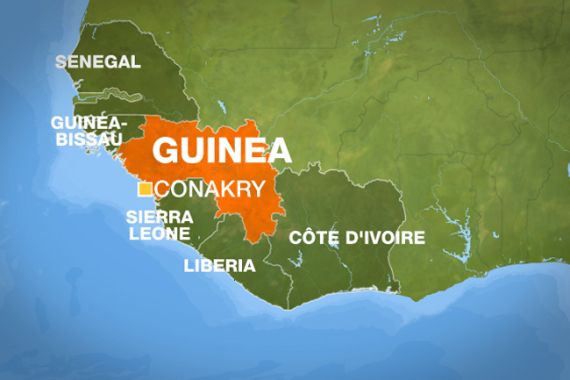Guinea top court rejects challenges to vote
The ruling means the RPG won 53 seats in the vote, defeating all its rivals but falling short of an absolute majority.

Guinea’s Supreme Court has rejected all the complaints lodged against the results of a Sept 28 parliamentary election in which President Alpha Conde’s RPG party won the most seats.
The ruling on Friday means the RPG won 53 seats in the vote, defeating all its rivals but falling short of an absolute majority in the 114-seat parliament.
The parliamentary vote was the last step in a tortuous return to civilian rule since a 2008 coup in the mineral-rich nation.
Opposition parties have threatened to restart street protests in which dozens were killed this year.
“None of the complaints were supported with the necessary proof,” said Mamadou Sylla, president of the court. Guinea’s main opposition parties had sought to annul the vote, while the RPG had challenged a handful of results.
The confirmed results mean Conde’s main rival, Cellou Dalein Diallo, and his UFDG party won 37 seats, while former Prime Minister Sidya Toure’s UFR secured 10 seats.
The rest of the seats were shared by 12 minor parties, and a period of coalition building is now expected.
Opposition disappointed
Aboubacar Sylla, a spokesman for the umbrella group of opposition parties, said they were disappointed by the result but would hold discussions before announcing their next step on Saturday.
At least 50 people were killed in violent protests in the run-up to the elections this year.
Damantang Albert Camara, a spokesman for the government and a senior figure in the ruling party, called on all Guineans to put the interests of the country ahead of party affiliations.
Large numbers of security forces were deployed across the seaside capital ahead of the announcement of the result on Friday.
Guinea is the world’s top bauxite exporter and its vast, largely untapped iron ore reserves have drawn promises of multibillion-dollar investments by major mining companies.
Conde came to power after a 2010 election, but the parliamentary vote had been repeatedly delayed and the political instability surrounding the election dampened some of the enthusiasm shown by investors in recent years.
In a country where the president holds much of the real power, the parliamentary poll was widely seen as a warm-up for the presidential vote in 2015, when Conde’s first five-year term ends.